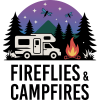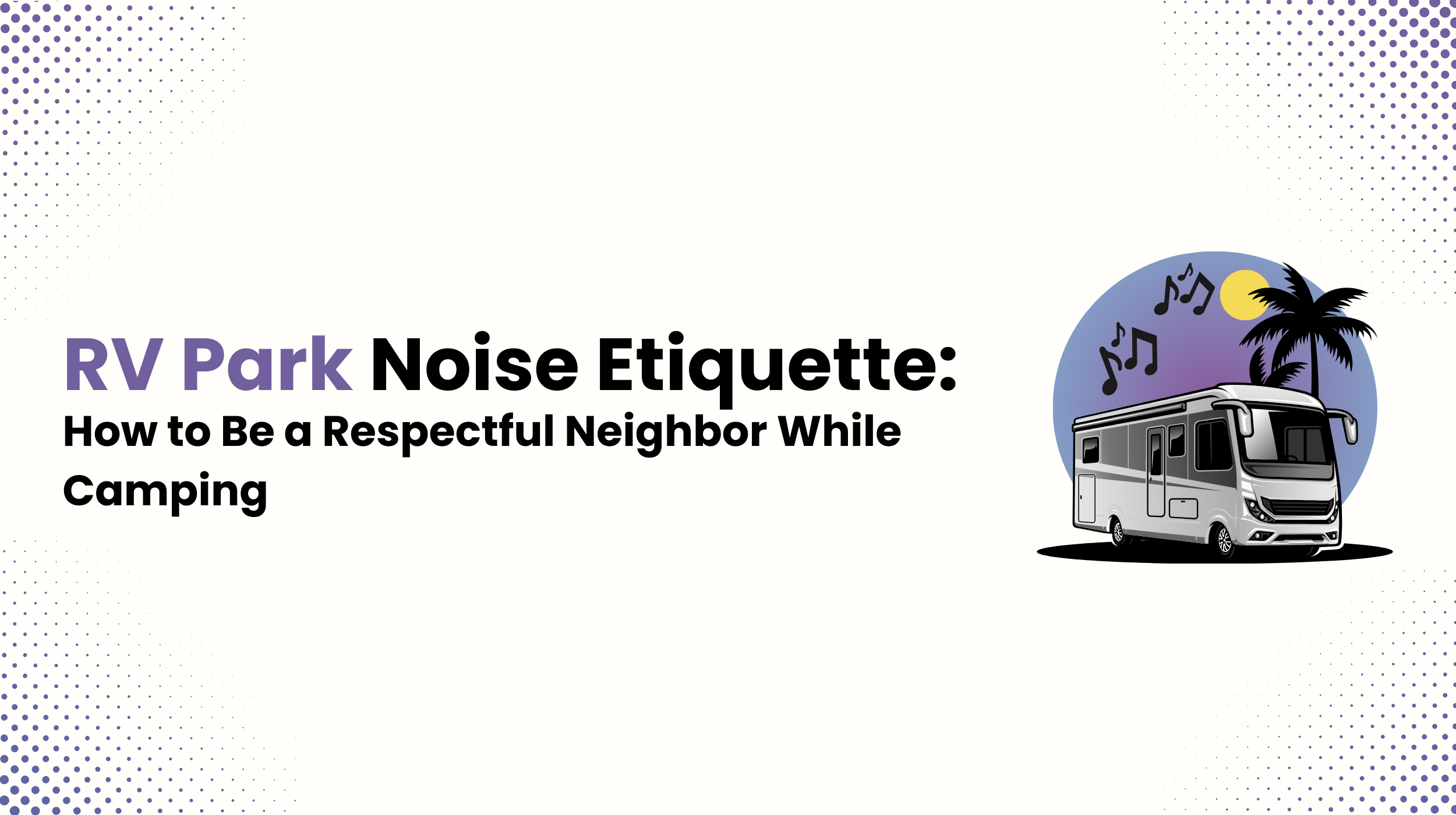One of the most cherished parts of camping is the stillness. The gentle rustle of trees, the chirping of crickets at night, the soothing hum of the wind. That peace and quiet is part of what makes an RV stay so restorative. But when you’re sharing a campground with dozens of other families, couples, and solo adventurers, maintaining that tranquility takes a little effort from everyone.
Most RV parks and campgrounds have designated “quiet hours” to help preserve the calm, especially at night. But noise etiquette doesn’t end when the sun rises. Whether you’re running a generator, playing music, or just laughing around a campfire, your neighbors can hear you. So, how you handle sound can mean the difference between friendly waves and awkward glares.
Here’s a complete guide to RV park noise etiquette, so you can enjoy your stay and be the kind of neighbor everyone appreciates.
Know and Respect the Quiet Hours
When you check in at an RV park, one of the first things you should do is check for posted quiet hours. These are usually printed on the campground map or included in your check-in paperwork. If not, a quick question at the front desk will clear things up.
Most parks enforce quiet hours between 10 PM and 7 AM, varying slightly depending on the location and season. During this time, the goal is simple: keep noise to a minimum so everyone can rest.
You should avoid loud conversations or laughing around the campfire during these hours. Music, speakers, and radios should be turned off entirely. You should also avoid engine idling or generator use, as well as slamming doors or running water hoses near other sleeping guests.
If you arrive late at night or pack up early in the morning, try to be extra quiet. Use your parking lights rather than your brights. Close doors gently and skip setup activities like deploying slides or leveling unless absolutely necessary. You’ll be surprised how far small gestures like this go in creating a positive campground experience for others.
Daytime Noise: Keep It Reasonable
Campgrounds are not libraries, nor should they be. Laughter, games, conversations, and the sounds of adventure are part of the joy of RV life. But even outside of official quiet hours, noise should be reasonable and respectful.
Suppose you’re setting up a lively game of cornhole with friends, fantastic. Just take a look around. Are the folks next door quietly reading in camp chairs? Is there a baby stroller at the site across the road? Being aware of your surroundings helps ensure your fun doesn’t disturb someone else’s downtime.
When it comes to music, the general rule of thumb is that if your neighbor can clearly hear the lyrics from their site, it’s too loud. Using small Bluetooth speakers and aiming them toward your RV helps contain the sound. The volume should be loud enough for you to enjoy your playlist without broadcasting it across the campground.
If you’re traveling with kids or pets, it’s helpful to teach them about boundaries and noise too. It’s totally okay for kids to play and make noise during the day, but chasing wildlife, screaming games, or bouncing balls off other people’s RVs will wear out your welcome fast.
Generator and Engine Use: Timing is Everything
Generators are incredibly helpful, especially if you’re at a partial hookup site or boondocking at a rustic RV resort, but they’re also one of the biggest noise complaints at campgrounds. Even the quieter inverter models can be disruptive if used at the wrong time or for too long.
First, check if generators are even allowed at your site. Many RV parks with full hookups prohibit them altogether. If they are permitted, there are usually designated generator hours, often between 8 AM and 8 PM. You should never run your generator during quiet hours, and even during the day, it’s best to limit use to short spurts for necessary recharging or cooking.
If you’re relying on a generator, be thoughtful about where you park. Try to angle your exhaust away from neighboring campsites or use a generator box to dampen the noise. Some RVers go a step further and invest in solar panels or portable power stations to reduce the need for loud equipment altogether.
Your RV engine needs similar consideration. While it’s normal to warm up a diesel before hitting the road, idling for 30 minutes outside someone’s window at dawn isn’t considerate. Do what you need and roll out as smoothly and quietly as possible.
Handle Noisy Neighbors Politely
Sometimes, despite your best efforts, someone nearby doesn’t follow the unspoken rules. Maybe they’re blasting music past midnight or running their generator before sunrise. What do you do?
Start with a friendly, polite conversation. A quick comment like, “Hey, just so you know, the sound really travels through here, would you mind turning that down?” is often all it takes. Most people aren’t trying to be rude, they just aren’t aware.
But if they ignore your request, or you’re uncomfortable saying something, this is a good time to speak to the campground host or park manager. They are there to help, and enforcing rules is part of their job. Don’t hesitate to let them know if you’ve tried the polite route and it didn’t work.
On the flip side, if someone approaches you about your noise and they have a valid point, it’s best to own it. Apologize, make adjustments, and move on. Being humble about it is always better than creating conflict.
Can You Play Music at Your Campsite?
Yes, absolutely. Music is part of the camping experience for many people, it adds to the mood, helps with relaxation, and makes everything from breakfast to stargazing more fun. But like everything else in shared spaces, it’s important to consider how your music affects those around you.
If you want to play music, keep it at a moderate volume. You should be able to enjoy your playlist without making it the soundtrack of the entire campground. Use a small speaker and aim it toward your RV or down toward the ground so the sound doesn’t carry as much.
When night falls and quiet hours begin, turn off your music entirely or switch to headphones. This allows you to keep enjoying your tunes without disturbing neighbors who might be trying to sleep.
Also, consider your music choices, especially in the early morning or late evening. Not everyone wants to wake up to hard rock or hear explicit lyrics while having their morning coffee. Picking fun but inoffensive music helps ensure you’re being a good neighbor.
Final Thoughts: Be the Neighbor Everyone Wants
Ultimately, RV park noise etiquette is about one thing: being considerate. You’re not camping alone in the woods, you’re part of a temporary neighborhood filled with people looking for a good time and some rest.
When everyone observes the rules, shows kindness, and keeps volume in check, campgrounds become what they’re meant to be: welcoming, peaceful, and fun.
So next time you’re setting up at a new RV resort, whether it’s a beachfront paradise in Florida, a forested nook in the Smoky Mountains, or a desert escape in Arizona, take a moment to notice your surroundings. Enjoy your time, be a little quieter during quiet hours, and remember that a respectful camper is a remembered camper.
That way, when someone sees your rig pull in next time, they’ll smile and think, “Oh good, it’s them again.”

